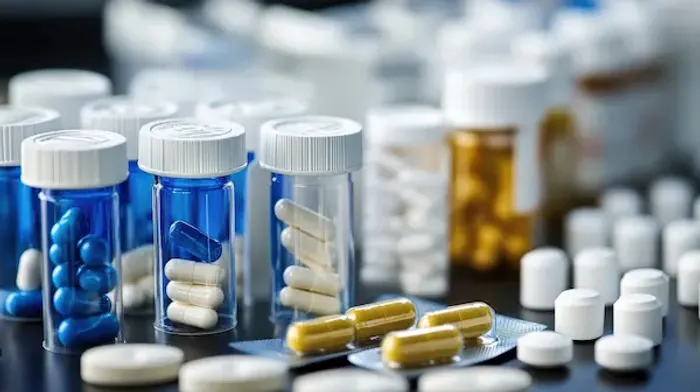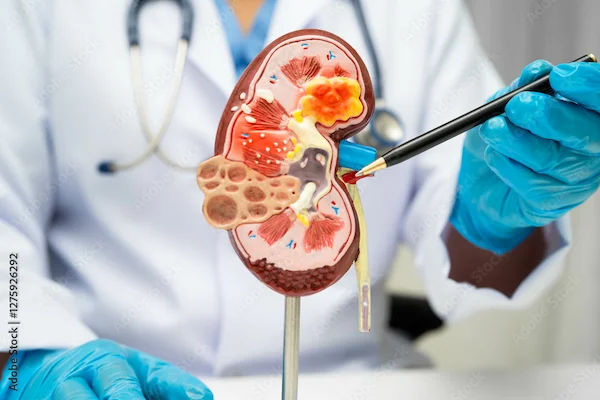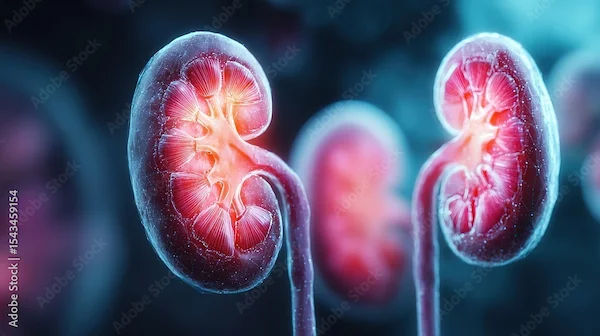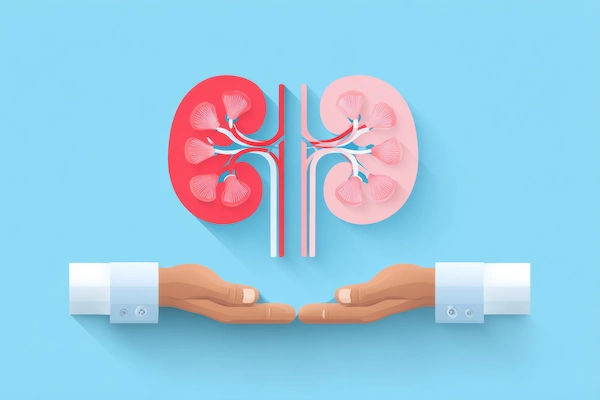Side Effects Of Immunosuppressants After Kidney Transplant
Understand the common side effects of immunosuppressants after kidney transplant, including increased infection risk, weight gain, high blood pressure, diabetes, and strategies for managing them.


Introduction
If you or a loved one has recently undergone a kidney transplant, you may be taking immunosuppressant medications to prevent your body from rejecting the new kidney. While these drugs are essential for the success of the transplant, they can also cause side effects. Understanding these side effects and how to manage them can help you stay healthy and enjoy a better quality of life posttransplant.
What Are Immunosuppressants?
Immunosuppressants are medications that weaken your immune system to prevent it from attacking the transplanted kidney. Since your body naturally sees the new kidney as a foreign object, these drugs help protect it. However, suppressing the immune system can also make you more vulnerable to infections and other health issues.
Common Side Effects of Immunosuppressants
Different immunosuppressants have varying side effects, but some common ones include:
1. Increased Risk of Infections
Since these medications lower your immune response, you may be more prone to:
Bacterial infections (e.g., urinary tract infections, pneumonia)
Viral infections (e.g., cold sores, shingles, flu)
Fungal infections (e.g., oral thrush, yeast infections)
How to Manage:
Wash your hands frequently.
Avoid close contact with sick people.
Stay updated with vaccinations (as advised by your doctor).
Report any signs of infection (fever, cough, pain) to your doctor immediately.
2. High Blood Pressure
Some immunosuppressants, like cyclosporine and tacrolimus, can raise blood pressure.
How to Manage:
Monitor your blood pressure regularly.
Follow a low-sodium diet.
Exercise moderately (as recommended by your doctor).
Take prescribed blood pressure medications if needed.
3. Kidney Damage
Ironically, some immunosuppressants can harm the kidneys over time.
How to Manage:
Get regular kidney function tests.
Stay hydrated.
Avoid medications that can further damage kidneys (like NSAIDs—ibuprofen, naproxen).
4. Diabetes (New-Onset After Transplant)
Certain drugs, such as tacrolimus and steroids (prednisone), can increase blood sugar levels, leading to posttransplant diabetes.
How to Manage:
Monitor blood sugar levels.
Eat a balanced, low sugar diet.
Exercise regularly.
Take diabetes medications if prescribed.
5. Weight Gain & Swelling
Steroids can cause:
Increased appetite → weight gain
Fluid retention → swelling (especially in the face and legs)
How to Manage:
Eat a high protein, low fat diet.
Limit salt intake to reduce swelling.
Stay active with light exercises (walking, yoga).
6. Bone Weakness (Osteoporosis)
Long-term steroid use can weaken bones, increasing fracture risk.
How to Manage:
Take calcium and vitamin D supplements (if prescribed).
Do weightbearing exercises (walking, light strength training).
Get bone density tests as recommended.
7. Increased Cholesterol & Heart Disease Risk
Some immunosuppressants can raise cholesterol levels, increasing the risk of heart disease.
How to Manage:
Eat a heart healthy diet (fruits, vegetables, whole grains, lean proteins).
Avoid fried and processed foods.
Take cholesterol-lowering medications if needed.
8. Hair Loss or Excessive Hair Growth
Cyclosporine may cause extra hair growth (face, arms).
Tacrolimus or mycophenolate may cause hair thinning.
How to Manage:
Use gentle hair care products.
Consult your doctor if hair loss is severe.
9. Digestive Problems
Some immunosuppressants can cause:
Nausea
Diarrhea
Stomach pain
How to Manage:
Take medications with food (if allowed).
Eat small, frequent meals.
Stay hydrated.
10. Mood Changes & Sleep Issues
Steroids can cause:
Mood swings
Anxiety
Insomnia
How to Manage:
Practice relaxation techniques (meditation, deep breathing).
Maintain a regular sleep schedule.
Talk to your doctor if mood changes are severe.
When to Seek Medical Help?
Contact your transplant team immediately if you experience:
High fever or severe infection
Sudden weight gain or swelling
Severe headaches or vision changes (could indicate high blood pressure)
Uncontrolled blood sugar levels
Signs of kidney rejection (decreased urine output, pain near the transplant site)
Consult Top Nephrologists
Tips for Staying Healthy After a Kidney Transplant
Tips for staying healthy after a kidney transplant are:
1. Take medications exactly as prescribed – Never skip or adjust doses without consulting your doctor.
2. Follow a kidney-friendly diet – Limit salt, sugar, and unhealthy fats.
3. Stay active – Moderate exercise helps maintain weight and heart health.
4. Avoid infections – Stay away from crowded places if needed, and practice good hygiene.
5. Regular checkups – Keep up with lab tests and doctor visits.
Need Help? Consult a Specialist on Apollo 24|7
If you're experiencing troubling side effects or need guidance on managing your posttransplant health, Apollo 24|7 offers expert consultations with nephrologists and transplant specialists. You can also book lab tests to monitor your kidney function and overall health.
Consult Top Nephrologist
Consult Top Nephrologists

Dr. Pardha Saradhi
Nephrologist
9 Years • MBBS, MD-DNB (Gen. Med.), DNB (Nephro)
Hyderabad
Apollo Hospitals D R D O kanchanbagh, Hyderabad
(75+ Patients)
Dr Ch Sashidhar
Nephrologist
20 Years • MBBS, MD General Medicine, DNB, Nephrology
Secunderabad
Apollo Hospitals Secunderabad, Secunderabad

Dr Praveen Kumar Etta
Nephrologist
10 Years • MBBS,MD DM(SGPGI) FORMER ASST(PIMS)
Hyderabad
Apollo Spectra Ameerpet, Hyderabad

Dr. Aswini Kumar Panigrahi
Nephrologist
23 Years • MBBS, MD (Int. Med.), DNB Nephro
Hyderabad
Apollo Hospitals Jubilee Hills, Hyderabad
(225+ Patients)

Dr. Manju Kamal
Nephrologist
12 Years • MBBS,MD(General Medicine), DNB,DM(Nephrology)
Angamaly
Apollo Hospitals Karukutty, Angamaly
Consult Top Nephrologist

Dr. Pardha Saradhi
Nephrologist
9 Years • MBBS, MD-DNB (Gen. Med.), DNB (Nephro)
Hyderabad
Apollo Hospitals D R D O kanchanbagh, Hyderabad
(75+ Patients)
Dr Ch Sashidhar
Nephrologist
20 Years • MBBS, MD General Medicine, DNB, Nephrology
Secunderabad
Apollo Hospitals Secunderabad, Secunderabad

Dr Praveen Kumar Etta
Nephrologist
10 Years • MBBS,MD DM(SGPGI) FORMER ASST(PIMS)
Hyderabad
Apollo Spectra Ameerpet, Hyderabad

Dr. Aswini Kumar Panigrahi
Nephrologist
23 Years • MBBS, MD (Int. Med.), DNB Nephro
Hyderabad
Apollo Hospitals Jubilee Hills, Hyderabad
(225+ Patients)

Dr. Manju Kamal
Nephrologist
12 Years • MBBS,MD(General Medicine), DNB,DM(Nephrology)
Angamaly
Apollo Hospitals Karukutty, Angamaly


_4.webp)

_5.webp)